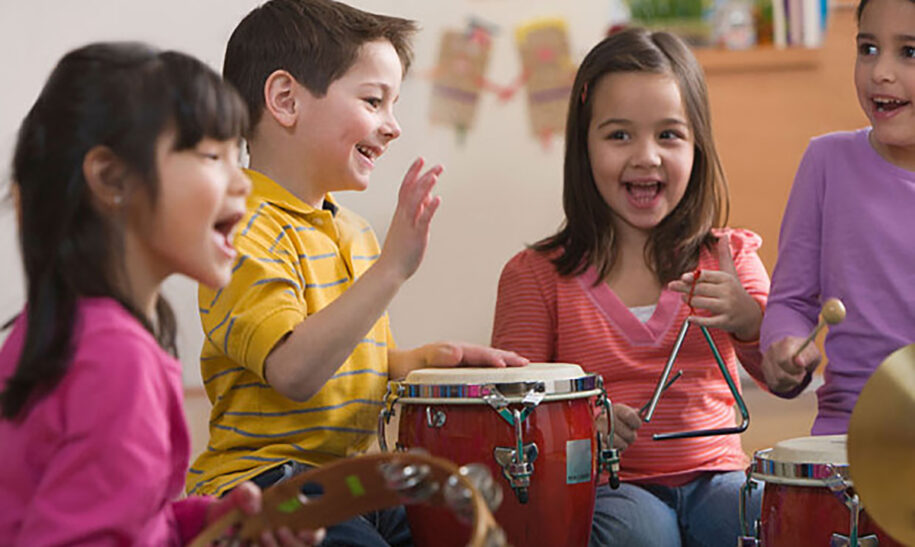If You Want To Accelerate Brain Development In Children, Teach Them Music
Music has more benefits than just giving you a good vibe. It can actually accelerate the development of a child’s brain, according to a 5-year research study.
Everybody has always loved music. There is always some kind of tune out there that can lift your mood! It’s great for the mind and the soul. Many people might think that music just doesn’t matter because it’s just a hobby, but in fact, music changes lives; it’s so great for us and our brain, but that’s not all. A five-year research study performed by USC Neuroscientists shows that music can accelerate the growth of a child’s brain.
According to the study, music instruction can accelerate brain development in younger children. It particularly increases the production of brain cells in areas of the brain that are responsible for processing sound, language development, speech, perception, and reading skills.
The Brain and Creativity Institute at USC began a five-year study in 2012. The study was performed in partnership with the Los Angeles Philharmonic Association and the Heart of Los Angeles (HOLA). They set out to learn more about the effects of music instruction on a child’s social, emotional, and cognitive development. The study results showed that music has a deep impact on the development of a child’s brain. The study was published in the journal of Developmental Cognitive Neuroscience. It shows the many benefits of music education in a society that is limiting creativity.
“We are broadly interested in the impact of music training on cognitive, socio-emotional and brain development of children,” said Assal Habibi, the study’s lead author and a senior research associate at the BCI in the USC Dornsife College of Letters, Arts and Sciences. “These results reflect that children with music training, compared with the two other comparison groups, were more accurate in processing sound.”
Neuroscientists monitored brain development and behavior in a group of 37 children from underprivileged neighborhoods in Los Angeles. Thirteen children received music instruction through the Youth Orchestra Los Angeles Program at HOLA. The children in this group from ages 6 and 7, and practiced music training that was inspired by the El Sistema Method.
The children were taught how to play instruments such as the violin in ensembles and groups. They practiced approximately seven hours a week, and the researchers compared two groups; 11 children in a community soccer program and 13 children who were not involved in any after school activities. They used an EEG and MRI machines to track movements and changes in the child’s brain development, electrical activity, behavioral testing, etc. With just two years of the program, scientists began to see that the children’s brains are developing faster than a normal rate.
The researchers say that the children were maturing at a faster rate than children who weren’t being taught music. “If children are not introduced to music at an early age, I believe something fundamental is actually being taken from them.” ~ Luciano Pavarotti


